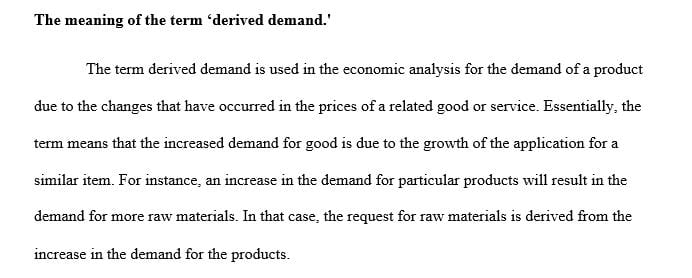The demand for labor is said to be a “derived” demand. What is the meaning of a derived demand?
The demand for labor is said to be a “derived” demand. What is the meaning of a derived demand? How does this concept help to determine the demand for labor?
What are some of the factors that determine the supply of labor in a market? What significant factors have changed the supply of labor over the last twenty years?
How does a firm determine its prices and the quantity of labor required in the resource market during a specific period?
Why do income inequalities exist? How are income inequalities measured? How have income inequalities changed from 1980 to the present?
What is the role of the U.S. government, in terms of dealing with the problem of income inequalities? What are the arguments, for and against, government involvement in this area?
Why do nations trade? What is meant by the concept of “Comparative Advantage”? Could a nation be better off economically, if it practiced an isolation policy?
The United States has had a significant trade imbalance for several years. What are the problems associated with having a negative trade balance? What can be done to correct the imbalance?
How are exchange rates determined? What is the significance of currency devaluations to the home country? To other countries?
Answer preview to The demand for labor is said to be a “derived” demand. What is the meaning of a derived demand?

1698 words

